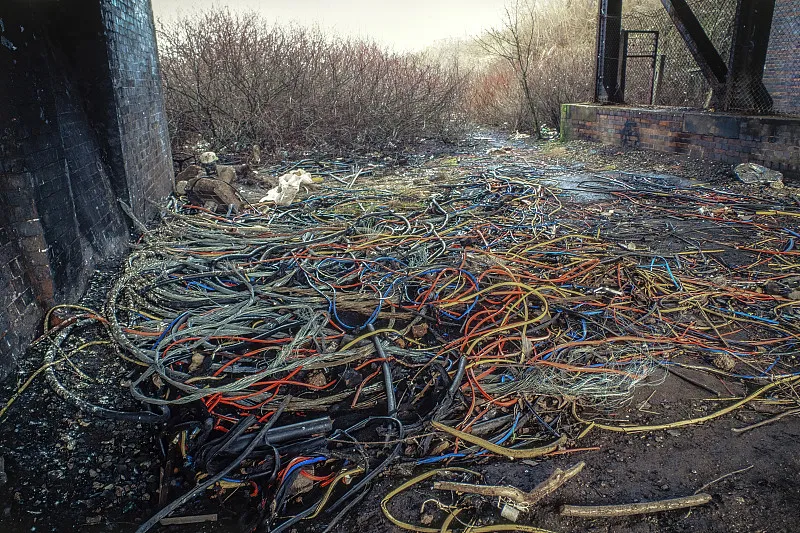Introduction PPR Pipe
Piping systems are the backbone of modern infrastructure, ensuring the smooth flow of water and fluids across residential, commercial, and industrial settings. Choosing the right material for your piping system is crucial to ensure durability, safety, and long-term cost-effectiveness. Among the various piping options available, PPR Pipe have emerged as the leading choice for heavy-duty and damage-resistant applications. In this article, we’ll dive deep into why heavy-duty PPR pipes are the ideal solution for robust plumbing systems, their benefits, applications, and maintenance tips.
What is PPR Pipe?
PPR pipes (Polypropylene Random Copolymer pipes) are a type of plastic pipe widely used in plumbing systems for water supply and other applications. Known for their excellent thermal and chemical resistance, PPR pipes are made from a type of polypropylene material that provides unmatched durability. These pipes are increasingly used in high-pressure and high-temperature environments, making them ideal for heavy-duty applications.
Why Choose Heavy-Duty PPR Pipe?
- Superior Durability
Heavy-duty PPR pipes are specifically designed to withstand extreme conditions, including high pressure, temperature variations, and physical damage. Their robust nature makes them damage-resistant and suitable for long-term usage without frequent repairs or replacements. - Corrosion and Chemical Resistance
Unlike metal pipes, PPR pipes do not corrode or react with chemicals, ensuring clean and safe water delivery. This corrosion resistance is vital for industries where chemical transport is required. - High-Temperature Tolerance
PPR pipes can tolerate temperatures up to 95°C, making them ideal for both hot and cold water systems. This temperature tolerance ensures safety and reliability even under high thermal loads. - Impact Resistance
The material properties of heavy-duty PPR pipes provide excellent impact resistance. Even under physical stress or accidental impact, these pipes retain their structure, making them damage-resistant. - Eco-Friendly and Recyclable
PPR pipes are non-toxic and environmentally friendly. They are 100% recyclable, aligning with sustainable construction and plumbing practices. - Cost-Effective
While the initial cost may be slightly higher, PPR pipes are cost-effective in the long run due to their durability, low maintenance, and resistance to wear and tear.

Applications of Heavy-Duty PPR Pipe
- Residential Plumbing Systems
PPR pipes are perfect for home water supply systems, including both hot and cold water applications.
They are damage-resistant, ensuring long-term reliability in residential settings. - Industrial Applications
Industries rely on heavy-duty PPR pipes for transporting chemicals, acids, and industrial fluids.
Their non-corrosive nature and durability make them ideal for harsh industrial environments. - Heating Systems
PPR pipes are widely used in underfloor heating systems and radiator connections due to their high-temperature resistance. - Agricultural Irrigation
Heavy-duty PPR pipes are used for irrigation systems where high-pressure water delivery is required. - Healthcare and Food Industries
PPR pipes are non-toxic, making them safe for transporting potable water and fluids in healthcare and food industries.
Key Features of Heavy-Duty PPR Pipe
- Leak-proof joints: Fusion welding ensures strong and leak-proof joints, eliminating water loss.
- Smooth inner surface: Reduces friction, ensuring efficient water flow and energy savings.
- Lightweight: Easy to transport and install compared to traditional metal pipes.
- Long lifespan: PPR pipes can last over 50 years, even under challenging conditions.
How to Maintain Heavy-Duty PPR Pipe
- Regular Inspection
Periodically check the piping system for leaks, cracks, or damage to ensure everything functions smoothly. - Avoid Chemical Exposure
Though PPR pipes are resistant to most chemicals, extreme chemical exposure should still be avoid. - Proper Installation
Ensure professional installation with proper welding to achieve maximum durability and performance. - Temperature Control
While PPR pipes can tolerate high temperatures, operating them within recommended temperature ranges enhances longevity. - Timely Replacement
In case of accidental damage, replace the affected sections promptly to maintain system integrity.
Heavy-Duty PPR Pipe vs. Traditional Metal Pipes
| Feature | Heavy-Duty PPR Pipes | Traditional Metal Pipes |
|---|---|---|
| Durability | High | Moderate |
| Corrosion Resistance | Excellent | Poor |
| Weight | Lightweight | Heavy |
| Installation | Easy and Fast | Complex and Time-Consuming |
| Temperature Resistance | Up to 95°C | Limited |
| Lifespan | Over 50 Years | 10-20 Years |
The comparison clearly shows that PPR pipes outperform traditional metal pipes in almost every aspect, making them the superior choice for modern piping systems.
Environmental Benefits of Heavy-Duty PPR Pipes
- Reduced carbon footprint: The production and transportation of PPR pipes require less energy compared to metal pipes.
- 100% recyclable: PPR pipes can be reuse and recycle, reducing waste.
- Non-toxic: Ensures safe water delivery without releasing harmful chemicals into the environment.
Conclusion
Heavy-duty PPR pipes are the ultimate solution for damage-resistant and durable piping systems. Whether for residential, industrial, or commercial applications, their superior features like corrosion resistance, high-temperature tolerance, and eco-friendliness make them the preferred choice for modern plumbing needs. By investing in PPR pipes, you ensure a long-lasting, safe, and efficient piping system that meets both current and future requirements.
Frequently Asked Questions (FAQs)
- What is the lifespan of PPR pipes?
PPR pipes can last over 50 years, depending on proper installation and usage conditions. - Are PPR pipes suitable for hot water systems?
Yes, PPR pipes can handle temperatures up to 95°C, making them perfect for hot water systems. - How do PPR pipes compare to PVC pipes?
PPR pipes are more durable, have better thermal resistance, and are suitable for high-pressure applications compare to PVC pipes. - Can PPR pipes be used for industrial purposes?
Absolutely. PPR pipes are commonly use in industrial settings for chemical and fluid transportation due to their non-corrosive properties. - Are PPR pipes environmentally friendly?
Yes, PPR pipes are eco-friendly, recyclable, and non-toxic, making them safe for the environment and human health.
By implementing heavy-duty PPR pipes, you can achieve a robust, efficient, and sustainable piping system that meets modern demands with ease.